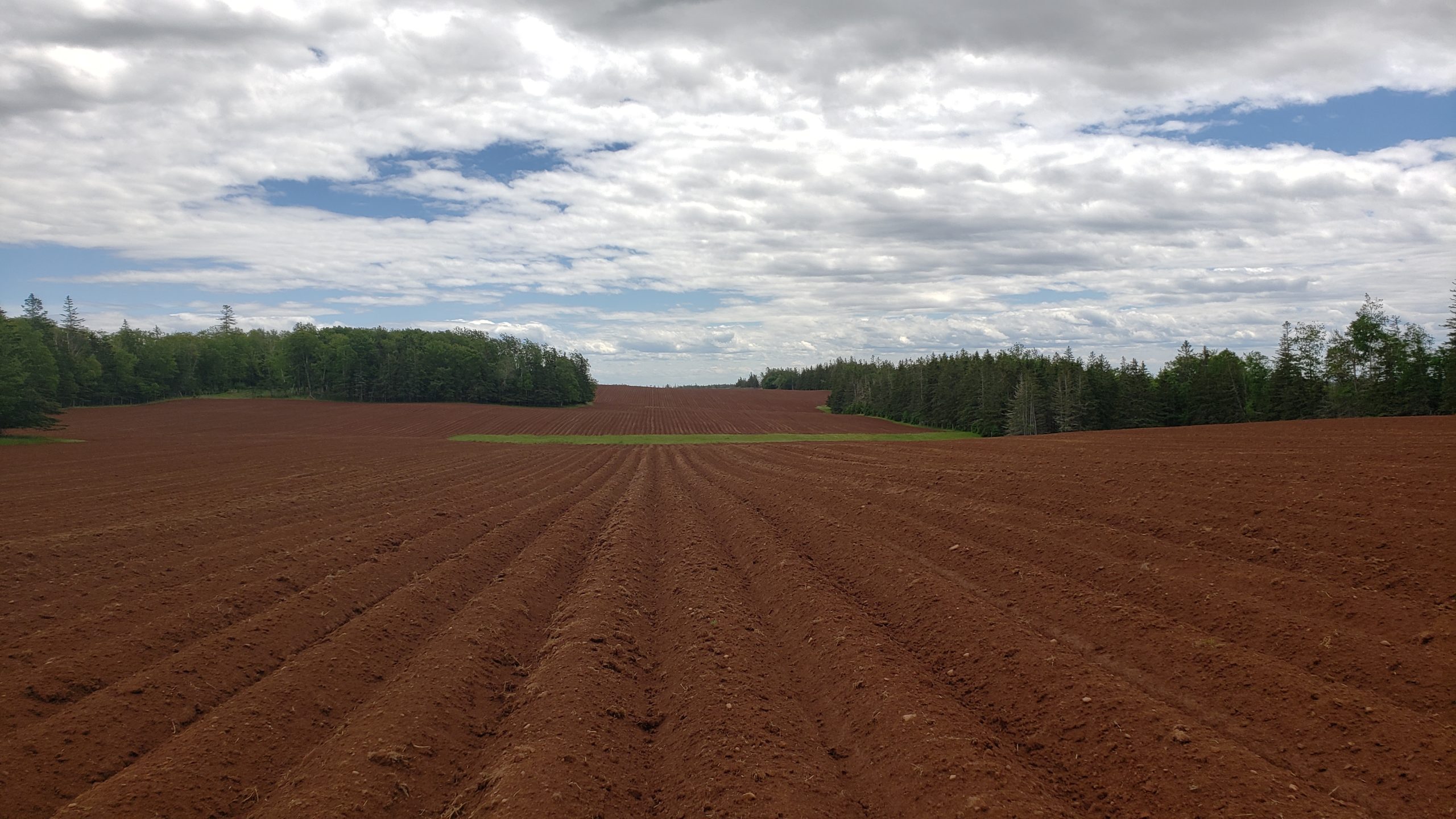
17 Jun Agronomy Update – June 17th
Hi everyone,
Morgan and I were just out doing some soil sampling and sensor installation today and finished in Kinkora just as it started to rain steadily. By the time I got to Kensington, there was blue sky. Another year of isolated rains has begun!
Here are some selected rainfall totals from Tuesday to Thursday at 3 pm: (from Weather Underground)
Elmsdale: 7 mm
West Cape: 6 mm
Miscouche: 10.2 mm
Malpeque: 6 mm
Norboro: 14 mm
Augustine Cove : 25 mm
Winsloe : 24 mm
Alliston: 35 mm
Souris: 46 mm
The fields that I’ve been in this week seem to be in good condition, with adequate soil moisture and few weeds. Emergence seems to be coming on quickly. A few early planted fields in Kings County are more advanced, but spuds are popping up all over. Seeing lots of folks getting at hilling and herbicide application.
A reminder for those hilling on a separate pass…take the time to double check your GPS lines and the condition of your equipment. I’ve been in a couple of fields this week where the hiller was off center on the row and now the plants are emerging on the side of the hill. More problematic are hills where one side of the hill has been compacted by the hiller, which can restrict root growth.
Soil Compaction – the Invisible Yield Robber:
This spring, Morgan and I have been testing a number of fields for trials. One parameter which we’ve been tracking in several fields is soil compaction. Unfortunately, we found quite a few fields that were more compacted than the grower or we expected. Most fields gave a reading of 300 psi at 12 inch depth, some at even shallower depths. At that level, root growth is severely restricted. This cuts the plant off from a source of water at deeper soil depths, which is particularly problematic in dryland conditions. Those compacted fields will also be slower to dry out after heavier rains and more likely to have water logged soil conditions in the fall, which can lead to wash outs and tuber rot.
Quite a few fields in potatoes this year were in potatoes in 2018, the year of a very wet fall and poor harvest conditions. I think this is behind some of the compaction readings being higher than normal.
We have lots of links to resources on soil compaction on the Agronomy Website at https://peipotatoagronomy.com/topic-soil-fertility/. There are some guides on subsoiling, effects of compaction, and how to prevent compaction in the first place.
If you are thinking about doing some subsoiling this year on fields that are going into potatoes next year, it should be timed when soil conditions are dry to maximize fracturing of compaction layers. Also, you should check your fields to assess the depth of compaction layers to figure out how deep you need to run the subsoiler. If you would like to borrow a penetrometer, let me know and we have an extra one we can lend out to growers.
Reminders for Upcoming Events:
June 22nd – Potato Crop Scouting Clinic (Online). Contact Lorraine MacKinnon to register.
July 6th – First Fieldworkers Meeting of the Summer. Contact Lorraine MacKinnon if you want to be added to her email list for these meeting.
SpudChat this week:
On this week’s episode of SpudChat, I talk about some of the trial work that we’ve been doing looking at soil health and suppressing soil-borne disease. SpudChat is available at https://spudchat.buzzsprout.com/ or wherever you download your podcasts.
If you haven’t listened to a podcast before, they are simple to download from a number of different podcast apps. I listen to them while I’m driving or walking in the evening. Or, you can listen directly from the player on the website linked above.
Have a great rest of your week!
Ryan
